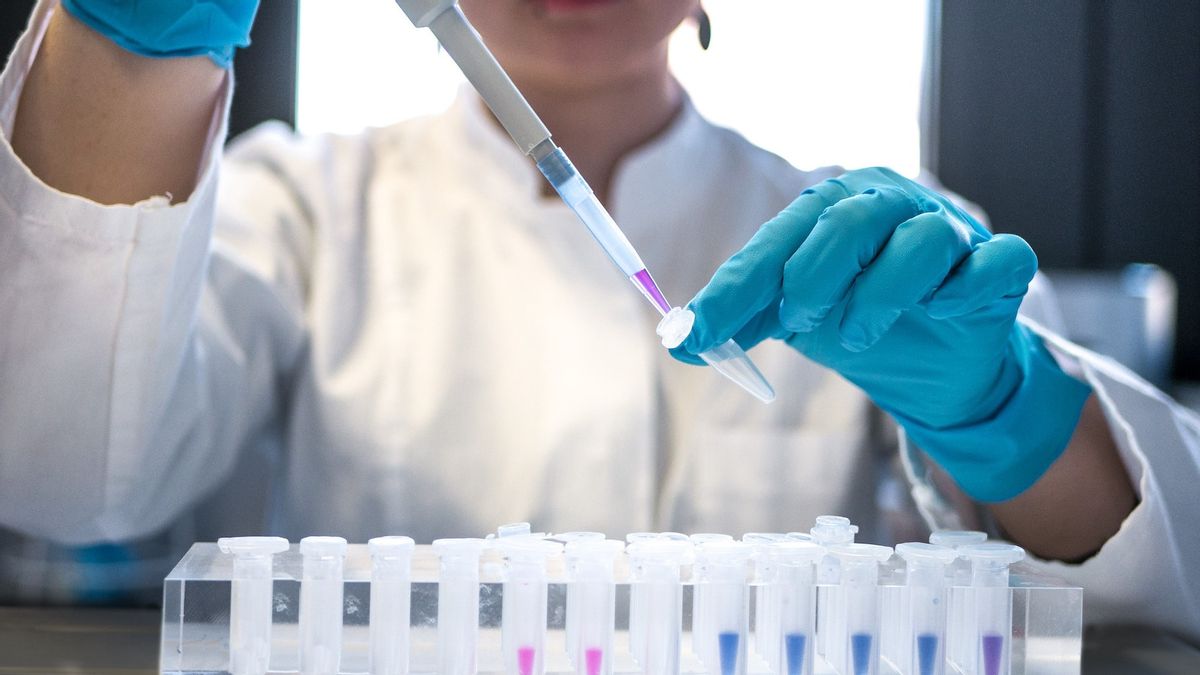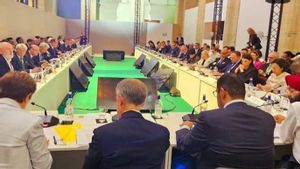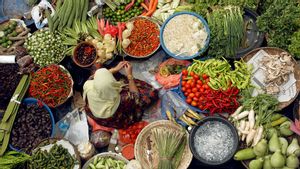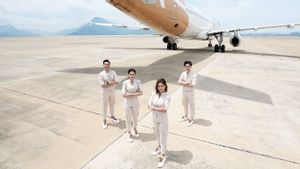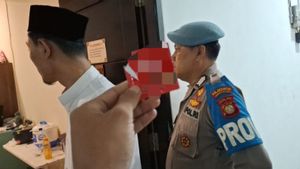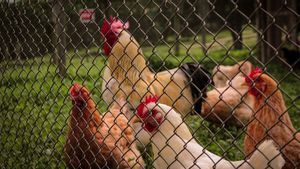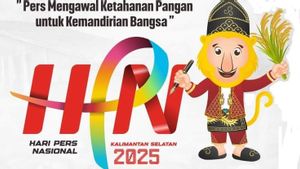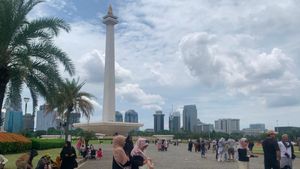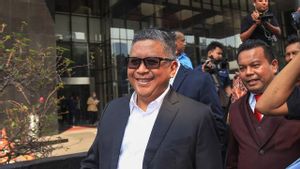JAKARTA - Merck, a leading science and technology company, has again organized the 2023 Merck Young Scientist Award (MYSA) which has been held since 2018. This year, Merck collaborated with the Biological and Environmental Sciences Research Organization, the National Research and Innovation Agency (BRIN) and Gadjah Mada University which also played a role as the jury to provide optimal assessment of the participants.
MYSA aims to invite young scientists to discuss together, share ideas, develop scientific research, and collaborate to create new breakthroughs as well as to appreciate the dedication of scientists in creating sustainable solutions to meet the health needs of the Indonesian people.
In an already modern era, knowledge and innovation are the keys to creating social change, sustainable socio-economic development, as well as encouraging global progress. As a science and technology company with the Life Science business, we collaborate with science scientists globally to deliver leading innovations, and Merck continues to commit to supporting and encouraging young scientists, including those in Indonesia, to conduct research and develop innovative medicines to improve the quality of people's lives today and before," said President Director of PT Merck Chemicals and Life Sciences, Bruno A. Mateus, in his statement, Saturday 26 August. This event is open to all Indonesian citizen scientists, both professional scientists, graduate students and scientists from universities, scientists from private institutions and countries, to scientists in hospitals who are a maximum age of 40 at the end of December 2023.
Research qualification includes product development and knowledge in the agricultural, health and environmental sectors that have been studied in laboratory tests. Registration was conducted online from August 9, 2023 to September 29, 2023, by sending a scientific research proposal to www.SigmaAldrich.ID/MYSA2023.
The development of science and technology in the field of biological science, especially biotechnology, in the utilization of biodiversity in this global era, is running very quickly. Vaccines, drugs, advanced materials and strategic industrial products in developed countries can now all be produced only data-based, namely genome and protein data.
In this era of data mining in biological science and technology, it requires mastery of key technologies in the field of genetic engineering with the help of other multi-disciplinary sciences including digital technology and artificial intelligence. This is where the role of young researchers in Indonesia is needed to answer various challenges, especially in the fields of biological science, health and related science.
The COVID-19 pandemic has provided a bitter experience for researchers in Indonesia as well as very valuable, where we have been shown that the gap in mastery of technology, especially in biological science, biotechnology and health, is quite far behind.
Iman Hidayat, Ph.D., Head of the BRIN Institute for Biological and Environmental Research, said that the Indonesian government through BRIN is determined to create a national research and innovation ecosystem that is able to create, foster and develop potential national young researchers to be able to compete globally and be able to produce innovations that are able to leverage the competitiveness of the national industry and accelerate sustainable national development.
As a collaborator hub for scientific activities, BRIN continues to be committed to collaborating with various parties including private partners to jointly build a research and innovation ecosystem that can support the creation of the best talent in the field of science and technology.
SEE ALSO:
"For this reason, we really welcome the collaboration and support from various parties, such as the support provided by Merck through the Merck Young Scientist Award which is expected to identify and give birth to the best innovators or young scientists in Indonesia to accelerate the acceleration of research and innovation in Indonesia. We are looking forward to seeing the scientific work of young Indonesian scientists in creating a new wave of innovations and ideas that can change lives," he explained.
MYSA 2023 will focus on 5 major themes, namely research related to infectious diseases (Infectious Diseases), research on cancer (Cancer Research), medical science (Medical Science), a process to find new drug candidates (Drug Discovery), and the synthesis of Industrial & Green Chemistry (Industrial & Green Chemical Synthesis). Each study must contain one of the criteria for research methods that have been determined and carried out in Indonesia in order to improve the quality of life of the community.
This year, we focus on developing sustainable innovative medicines. We believe that young scientists play a key role in advancing the field of health and science. Because, the younger generation is the main funnel in the sustainability of scientific research, and we believe that the new perspectives and knowledge they have are able to shape a brighter future to improve the quality of human life," concluded Bruno A. Mateus.
The English, Chinese, Japanese, Arabic, and French versions are automatically generated by the AI. So there may still be inaccuracies in translating, please always see Indonesian as our main language. (system supported by DigitalSiber.id)
